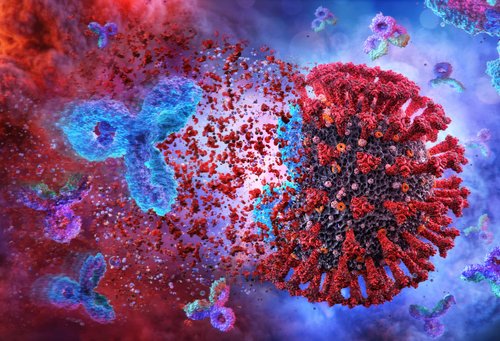
The Defense Advanced Research Projects Agency (DARPA) and the Joint Program Executive Office for Chemical, Biological, Radiological and Nuclear Defense (JPEO-CBRND) have earmarked $37.6 million for COVID-19 treatment development.
A research team representing scientists from The Wistar Institute, INOVIO, AstraZeneca, the Perelman School of Medicine at the University of Pennsylvania, and Indiana University would receive the funding allotment over two years to address rapid preclinical development and translational studies of DNA-encoded monoclonal antibodies (DMAbs) as COVID-19 countermeasures.
“We are thrilled that DARPA and JPEO-CBRND have chosen Wistar to assemble this exceptional team to focus on advancing potential DMAb countermeasures for the SARS-CoV-2 crisis,” said David B. Weiner, Wistar executive vice president, director of the Vaccine & Immunotherapy Center, and the W.W. Smith Charitable Trust professor in Cancer Research. “Our team combines many different strengths to advance this approach from the bench to the bedside at lightning speed. We have a strong track record of working together to advance DNA-based solutions into the clinic and look forward to advancing these first-in-human studies as a possible risk mitigation approach for COVID-19.”
Officials noted the program goal is to design, enhance and scale SARS-CoV-2-specific DMAbs, and move them into laboratory and animal model studies. Success would provide the foundation for rigorous, first-in-human clinical trials, per researchers.
“This partnership broadens the scope and application of our DNA medicines platform across the spectrum of needed COVID-19 treatment modalities and opens the door for faster, more cost effective, and scalable production of monoclonal antibody products for other infectious diseases, cancers, and other unmet medical needs,” J. Joseph Kim, president and CEO of INOVIO, said. “Working with our partners, we are excited about the potential this offers both for situations requiring immediate clinical response and benefit.”




